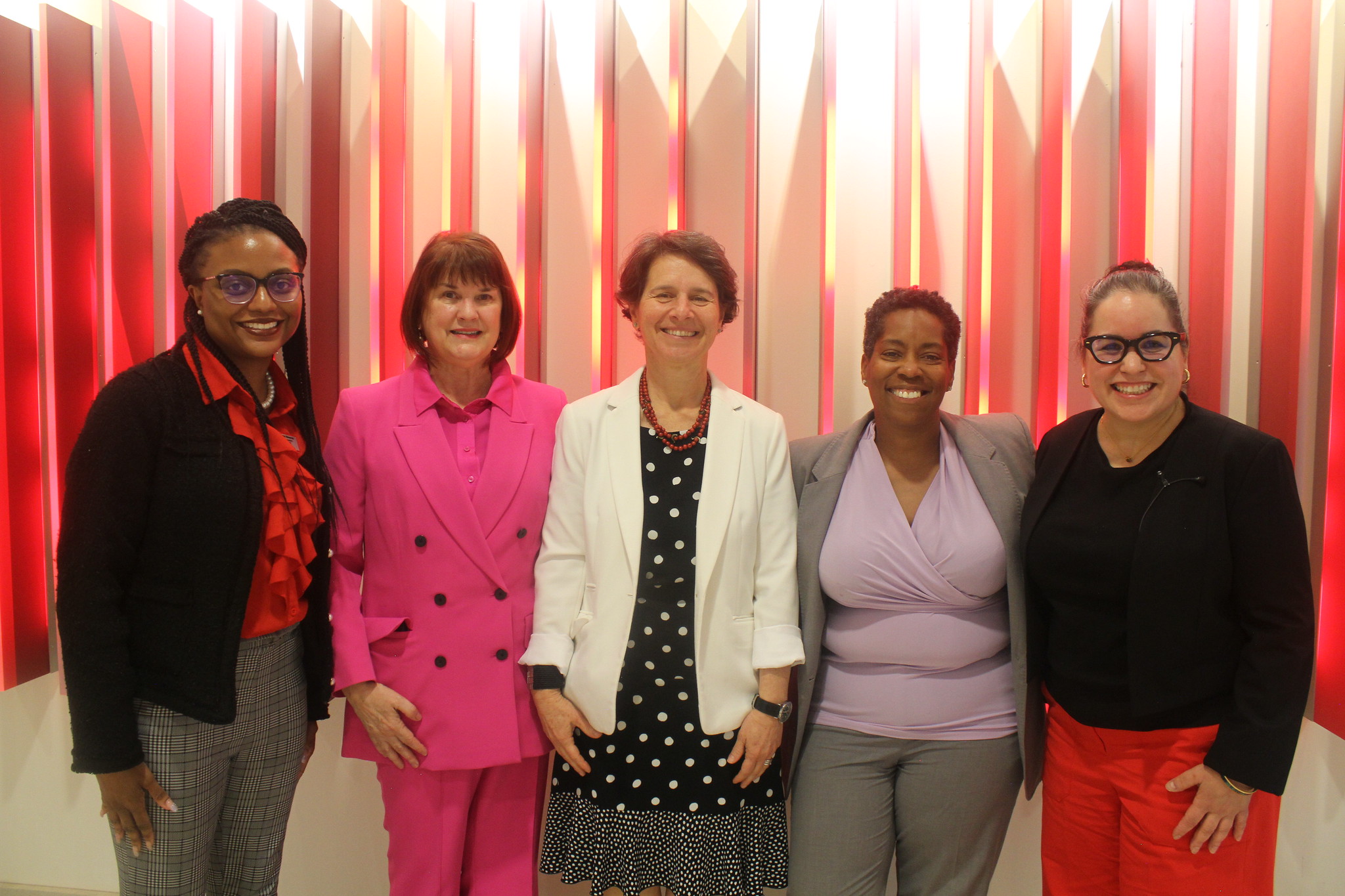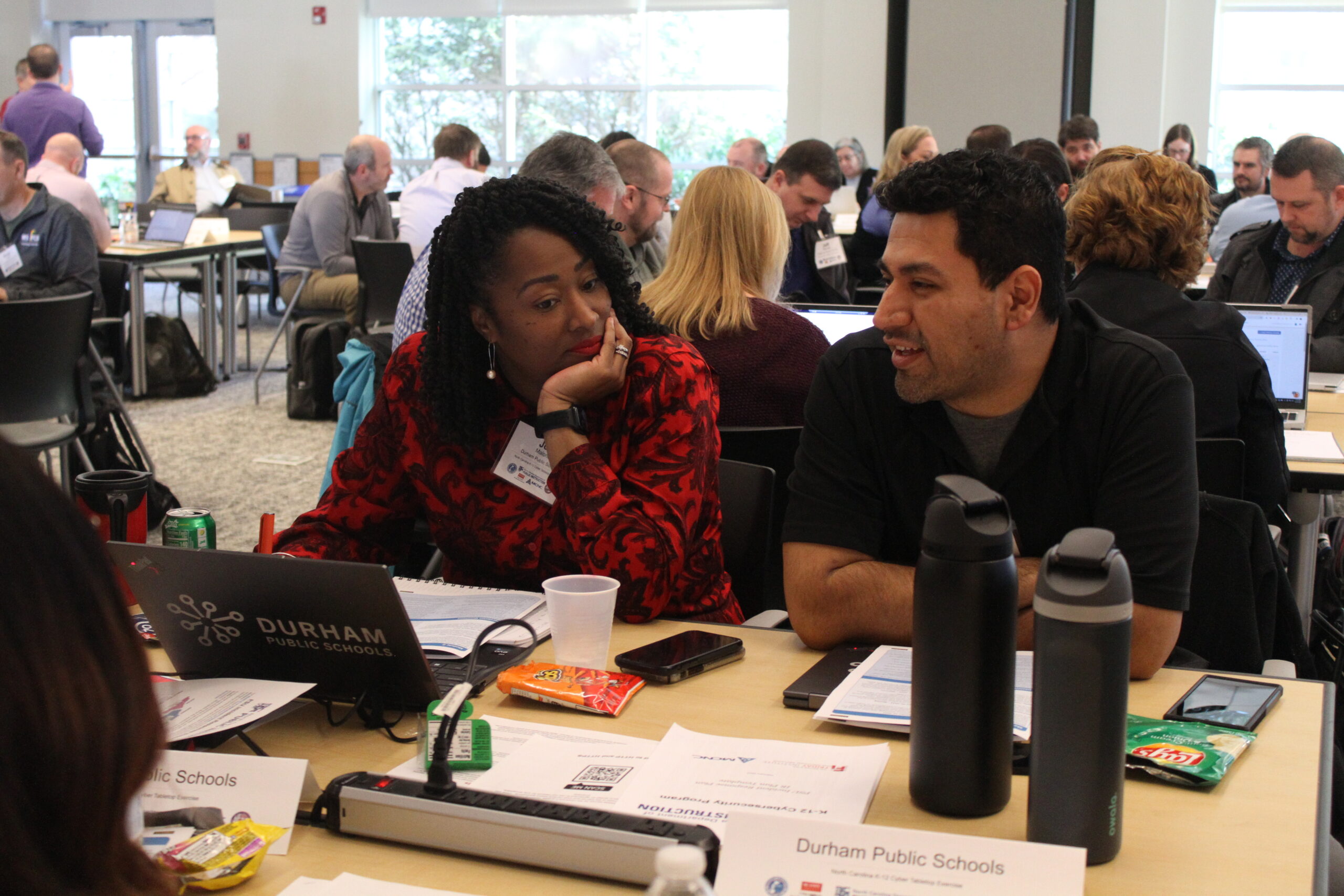Friday Institute Hosts High School Students in Career Accelerator Workforce Development Program

As the fifth fastest growing economy in the country, North Carolina’s significant increase in new jobs has emphasized the need for workforce development for its students. On July 26, the Friday Institute for Educational Innovation hosted local high school students from six schools in the Wake County Public School System (WCPSS) to learn about education careers, practice interview skills and gain insight into some of the Friday Institute’s projects. As part of the new Career Accelerator workforce development program created by WakeEd Partnership in partnership with WCPSS, rising high school students in grades 10-12 were provided immersive experiences with local companies to explore targeted career fields.
“As an institute connected to a world-class university, we believe in the importance of preparing students to be college- and career-ready,” said Melissa Rasberry, director of the Professional Learning and Leading Collaborative (PLLC) at the Friday Institute. “The Wake Summer Accelerator Program was a unique opportunity for Friday Institute employees to highlight our own careers while also giving students the chance to experience firsthand the amazing work we do.”
Rasberry and her colleague Amy Walter, a research scholar in the PLLC, organized the day the students spent at the Friday Institute. In addition to guiding students July 26, Rasberry also talked to Cary High School students the previous week about interview skills as part of the program.
“What was the most interesting part of the Career Accelerator program is that I’d be able to basically integrate myself into career choices that I have no interest in but I think certain aspects of it would help me out with the actual career that I want to pursue, such as social skills, communication skills,” said Denvah-Lynn Faust, a rising junior at Wake STEM Early College High School who hopes to become an infectious disease specialist or surgeon. “It would just strengthen that weakness that I have—something that I really need so that way I can just perfect it in a way even without having to actually be involved in the career path that I want to go into.”
Five teams across the Friday Institute led sessions throughout the day including an Amazing Race game to learn about education careers, mock interviews with a retired engineer and a global competence challenge. Teams also shared about their work in analyzing data and creating technology infrastructure to support access to broadband internet across North Carolina.
“I loved getting to work through a project with the students,” said Walter. “They were excited to engage in all tasks and asked great questions. I also loved seeing their teachers’ faces light up as we showcased different opportunities and activities.”
Not only did students learn about the Friday Institute’s work but also Friday Institute staff learned from one another.
“We often get stuck in our own silos at the Friday Institute, so I learned more about my colleagues and their work through this experience,” said Rasberry. “Hearing Sammie and Amir from the Technology Infrastructure Lab talk about their efforts to expand internet access throughout NC helped me better understand what they do, and the kids had lots to say about that work too.”
Local teachers chaperoned the students, and they were also impressed with the opportunities the Friday Institute shared.
”I think they really got an opportunity to understand the value of communication, critical thinking, learning how to take world experiences that they had and make it relevant to a real world situation,” said Rodney Obaigbena, a business and marketing teacher for WCPSS. “They’ve been exposed to career opportunities that they didn’t really know existed or that they had a chance to be involved in. So the exposure, I think, has been the best thing for them as well.”
- Categories:

